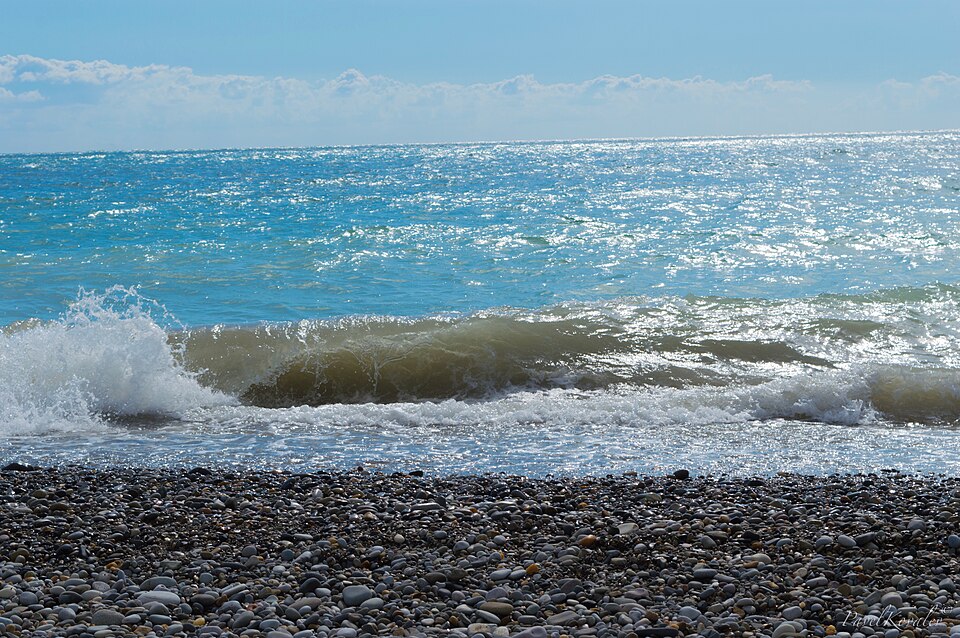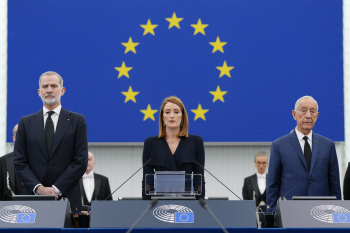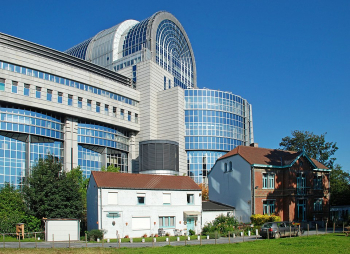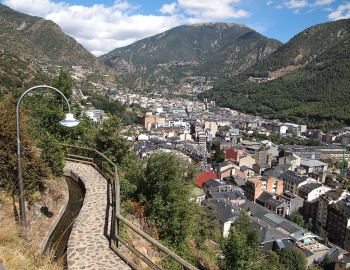
The European Union has unveiled a new strategy aimed at fostering stability, security, and prosperity in the Black Sea region. This initiative seeks to strengthen ties between
Europe, the South Caucasus, Central Asia, and beyond, while addressing the current geopolitical challenges—particularly those arising from Russia's war against Ukraine.
Strengthening cooperation and connectivity
The EU will deepen its cooperation with Ukraine, Moldova, Georgia, Türkiye, Armenia, and Azerbaijan. Many of these countries are on the path toward EU accession or closer alignment. The strategy aims to deliver practical benefits for both the EU and its partners by investing in key partnerships and regional connectivity.
Three core pillars of the strategy
The EU's future cooperation in the Black Sea region will focus on three main areas:
Security, Stability, and Resilience
Sustainable Growth and Prosperity
Environmental Protection, Climate Adaptation, and Civil Protection
Each pillar will include flagship initiatives to tap into the region's potential and address urgent challenges:
Maritime Security Hub: A new Black Sea Maritime Security initiative will focus on safeguarding shipping routes, critical infrastructure, and the marine environment. It will also support regional cooperation in demining and tackling environmental risks.
Connectivity Agenda: This will develop transport, energy, and digital networks to make the Black Sea a vital corridor linking Europe to Central Asia via the South Caucasus—boosting economic growth and competitiveness.
Climate and Disaster Preparedness: Measures will be taken to help coastal communities and blue economy sectors adapt to climate change, manage environmental damage from the war, and create sustainable growth opportunities.
Coordinated investments and long-term goals
The strategy will align EU policies and funding tools, particularly through the Global Gateway strategy and the Team Europe approach, which includes collaboration between EU institutions, member states, and European financial bodies. The ultimate aim is to build long-term security, shared prosperity, and regional resilience.
A forward-looking vision
President Ursula von der Leyen emphasized the EU’s crucial role in promoting security and peace in the Black Sea region, especially amid Russia's aggression. The EU will continue working with its neighbors to build a stronger and more prosperous region.
The Black Sea’s strategic location—as a bridge between Europe, the South Caucasus, Central Asia, and the Eastern Mediterranean—makes it central to efforts in connectivity, peacebuilding, and sustainable development.
The EU’s strategy is grounded in the principles of international law and the rules-based order. Central to this vision is the support for Ukraine’s resilience and reconstruction when conditions allow.
Key strategic priorities
Strengthening transport, energy, digital, and trade links between the Black Sea and regions like the Baltic, the Mediterranean, and Central Asia.
Increasing climate change resilience and disaster preparedness, particularly due to the region's vulnerability to environmental and man-made hazards.
Supporting reforms and integration efforts in partner countries—aligning them more closely with EU policies, laws, and the Single Market.
The strategy also supports the ongoing EU enlargement process and works in parallel with the Eastern Partnership framework, emphasizing shared values and joint cooperation.
What’s next
The European Commission and the High Representative have proposed a ministerial-level meeting between the EU and its partners to further implement this strategy.
Background
The Black Sea is a key trade and energy route and a vital geopolitical zone. The full-scale Russian invasion of Ukraine has deeply destabilized the region, highlighting vulnerabilities and underscoring the EU’s role in restoring balance.
With accession talks progressing with Ukraine and Moldova—and potentially Georgia—the EU's commitment to the region is growing. Türkiye remains a strategic partner and candidate country. Strengthening relations with Armenia and Azerbaijan is also a key goal.
This strategy is part of a broader package of EU responses to global geopolitical shifts. It ties into new initiatives like:
European Union Preparedness Strategy
ProtectEU – Internal Security Strategy
White Paper on Defence
European Oceans Pact
Ports Strategy
European Democracy Shield
Building on existing frameworks
The EU’s new Black Sea strategy builds on earlier initiatives such as:
Black Sea Synergy
Common Maritime Agenda
Strategic Research and Innovation Agenda
These frameworks will help implement the Connectivity Agenda and promote coordinated action in trade, transport, digital infrastructure, and energy.
Role of the global gateway
The Global Gateway initiative will be crucial in providing smart, clean, and secure investments in infrastructure and essential services. It represents the EU’s global offer to promote sustainable development and help partner countries manage digital and green transitions. Photo by Pavel Kovalev, Wikimedia commons.
















